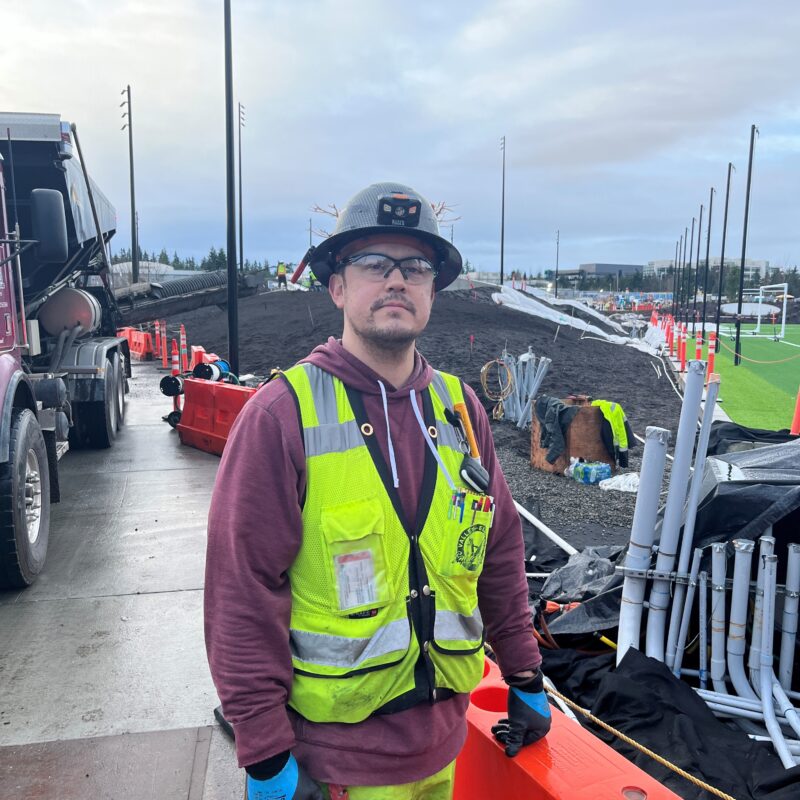
Earn while you learn
An electrical apprenticeship at Puget Sound Electrical JATC is an exceptional way to learn skills in the electrical field while working in the industry. It is an “Earn While you Learn” environment. Apprentices attend school one or two days a week on a quarterly basis. The classroom and lab instruction are the foundation for the skills used in the field. While on the job, apprentices work with licensed union journey-workers on various types of electrical jobs.
Application Overview
Getting into the apprenticeship is highly competitive and we receive over 2,000 applications for apprenticeship each year. Please keep in mind that just because you go through the application process does not mean you will be selected for apprenticeship. That may sound discouraging, but the rewards of being chosen as a PSEJATC apprentice are well worth the effort it takes to get into the apprenticeship. Completing the apprenticeship program of your choice will have life-long benefits for you and your family.
Ready to get started?
First thing you will need to decide before you apply, is which program do you want to apply to? Read about the three programs we offer within the electrical industry. The website has information for all three programs. Each is unique and deals with a different part of the industry. Make sure you meet the minimum requirements for the program you would like to apply for.
After you make your choice of program, then it is time to apply. All applications for apprenticeship are completed online. There is a $75.00 non-refundable application fee payable at the time of application. From the time you submit your application to the time you are placed on the apprenticeship ranking list may take four to five months.
Why so long?
Once you have started your application, you will have 60 days to provide the required documentation to prove you meet the minimum requirements for the program. If your documentation is complete and you meet the requirements, then you will be scheduled for the Aptitude Test. This is a timed online two-part test consisting of Algebra, and Reading and Comprehension. Once you pass this test, then you will be scheduled for the next available interview day.
At your interview, you will appear before the PSEJATC Interview Committee. All scheduled applicants are asked the same set of questions and are scored by the individuals on the committee. The combined score of the interviewers is then averaged. It is the averaged score that will place you on the apprentice ranked list. It is from this ranked list that we accept groups of applicants into the apprenticeship. You can stay on the ranked list for up to two (2) years. After the two (2) years, then your application is no longer valid and is closed.
Second interview
If your ranked score is not high enough to get into the apprenticeship, you may qualify for a second interview. You must meet certain requirements in order to qualify for the second interview. A list of those qualifications will be given to you when you finish your first interview.
As you can see, there are a many steps to the application process and each step takes time. We have high monthly volume of applications. We test and interview several times a month in order to try to keep up with the number of applicants we receive.

I am proud of the fact that this program has evolved so much over time, and how we’re teaching a new era of electricians.
Choose your career path
There are currently 1,000 apprentices total in the PSEJATC apprenticeship. We offer a choice of three different electrical career paths, each focusing on a specific area of the electrical industry. We have three locations available for training.
Inside Wire
Focuses on Industrial and Commercial electrical work. Maintains and installs various electrical wiring and systems found in buildings, schools, stadiums, etc.
Limited Energy
Electrical systems that require lower voltage are covered in this program. Fire alarm systems, medical call systems, smart homes are just a few of the areas taught.
Residential Wire
Electrical work for single family homes and multi-family housing up to three stories are the main area of instruction.